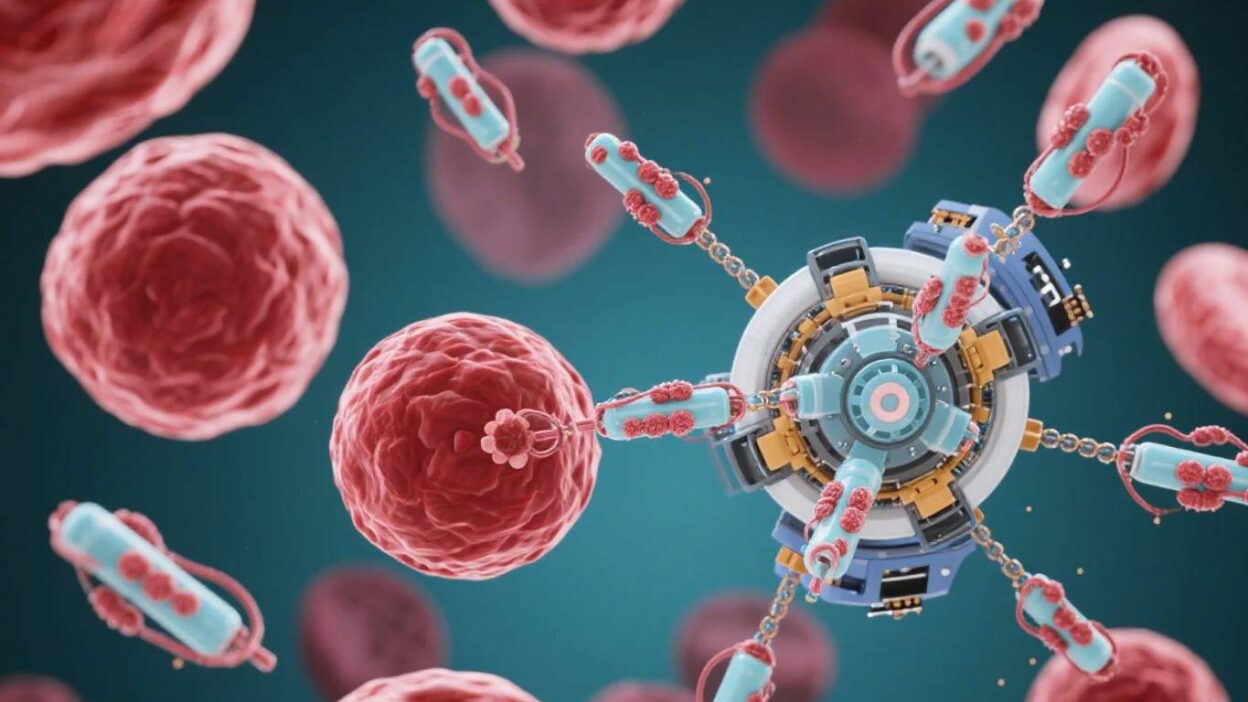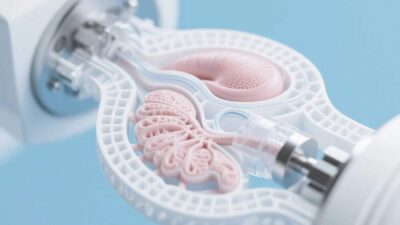Innovative Drug Delivery System Shows Promise in Treating Intractable Breast Cancer
Researchers from Tokyo University of Science, led by Assistant Professor Yuji Honda, graduate student Haruna Haraguchi, and Professor Nobuhiro Nishiyama, have developed a groundbreaking nanomachine drug delivery system that uses wine-derived compounds to deliver antibodies directly into cancer cells. This cutting-edge technology achieves pinpoint precision in targeting intracellular antigens, offering hope for treating challenging conditions like triple-negative breast cancer. With the potential to carry various therapeutic substances beyond antibodies, these nanomachines could revolutionize treatment for a wide range of diseases.
Overcoming the Challenges of Antibody Delivery
Traditional antibody drugs primarily target antigens on the surface of cells, as antibodies struggle to penetrate the cell membrane. Even when antibodies enter cells, they often become trapped in membrane vesicles called endosomes, preventing them from reaching antigens in the cytoplasm. This limitation has restricted the effectiveness of antibody-based therapies for intracellular targets.
To address this, the research team developed nanomachines using tannic acid (TA), a polyphenol found in wine, combined with ferric ions. By integrating TA with polyethylene glycol (PEG), the team created a protective shell structure that enhances the nanomachine’s stability in the bloodstream and prevents it from being recognized as a foreign substance by the body. This design also improves the nanomachine’s ability to accumulate in cancer tissue, ensuring efficient delivery to the target site.
How Nanomachines Work Inside Cancer Cells
The nanomachines are engineered to respond to the acidic environment within cancer cells. Once inside the cell, the nanomachine releases its antibody payload from the endosome, allowing the antibodies to bind to intracellular antigens effectively. This targeted approach ensures that the therapeutic agents reach their intended destination with precision, maximizing their impact.
In preclinical studies involving mice with triple-negative breast cancer—a notoriously difficult-to-treat form of cancer—these nanomachines demonstrated remarkable results. The antibody-loaded nanomachines reduced tumor size by 20% compared to untreated groups, showcasing their potential as a powerful tool in cancer treatment.
Versatile and Simple Design
Measuring approximately 30 nanometers in diameter (a nanometer is one-billionth of a meter), these nanomachines are compact yet highly effective. Their simple construction process involves mixing antibodies, polymers, and ferric ions, making them scalable for potential clinical applications. Beyond antibodies, the nanomachines can be equipped with other therapeutic substances, broadening their potential to treat various diseases, from cancer to other complex conditions.
A Promising Future for Nanomedicine
This innovative drug delivery system marks a significant advancement in nanomedicine. By leveraging natural compounds like tannic acid and combining them with cutting-edge nanotechnology, the research team has opened new doors for targeted cancer therapies. The ability to deliver antibodies directly to intracellular targets could transform the treatment landscape for intractable cancers and other diseases that have been difficult to address with conventional therapies.
For more information about this groundbreaking research, visit Tokyo University of Science or explore related studies on nanotechnology in cancer treatment.



